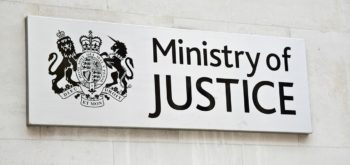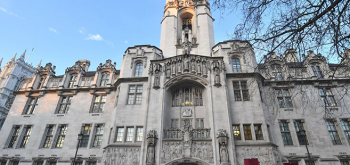A new report from the University of Sussex Migration Law clinic exposes the lack of legal provision for immigration advice and representation in Brighton and Hove
Over five years ago, we set out the dire state of legal services for adult asylum cases in Brighton and Hove: even those who were entitled to legal aid were unable to secure local representation. The area had become what our colleague Jo Wilding describes as an ‘advice drought’, a situation in which legal advice may appear to be available, but is, in fact, practically inaccessible. In response, we put together a team of students and staff to more fully investigate local legal needs and secured funding to set up a migration law clinic within the University of Sussex.
In our new report we set out how the situation has in fact worsened since our initial observations, against an alarming political backdrop in which the temporarily abandoned Bill of Rights – with its potentially devastating effects on rights protection – looms large, and asylum applicants face the devastating prospect of involuntary removal to Rwanda under a scheme ‘firmly opposed’ by the UNHCR for ‘trading’ people as commodities. Further, there are ‘real term’ cuts to the justice budget in an already fragile context.
A group of undergraduate students interested in immigration law and supervised by academic staff gathered data through desk-based research and interviews with local stakeholders, including people from migrant backgrounds. Our aims were to show some of the challenges faced by those living in Brighton and Hove when applying for asylum, and other forms of leave to remain and leave to enter; to identify the extent and reasons for any shortfall in cost-free immigration and asylum legal advice and representation in Brighton and Hove; and to gauge the demand for additional free legal advice.
Worsening drought
Confirming our initial observations, the research established that, as in other parts of England and Wales, there is a shortfall in cost-free immigration and asylum legal advice and representation in Brighton and Hove, which has grown significantly following the introduction of the Legal Aid, Sentencing and Punishment of Offenders Act 2012 (LASPO). The ‘drought’ continues and has even worsened throughout time, with only one local legal aid provider of immigration and asylum legal advice and representation, which at the time of the research was restricted to work concerning unaccompanied asylum-seeking children and domestic violence cases.
The shortage of cost-free services is particularly concerning given that Brighton and Hove is now an asylum dispersal area. Given that this development occurred as recently as 2021, the full impact of dispersing asylum seekers to an area with such a shortage of cost-free immigration advice and representation is yet to be seen.
Research participants recounted numerous challenges when attempting to make applications to the Home Office, including: issues with language and cultural barriers in dealing with the Home Office officials; difficulties securing evidence and completing application forms; and prohibitively high costs for making applications. These create a genuine need for professional legal assistance. However, the high application fees put costly legal services even further out of reach.
There are also significant barriers for organisations wishing to enhance their support in this area: those who wish to provide immigration and asylum legal advice and representation are often prevented from doing so by difficulties in obtaining a legal aid contract or registration with the Office of the Immigration Services Commissioner (OISC). Further – as a major contributory factor to the current drought – we identified Brighton and Hove based solicitors who had previously provided legal aid immigration and asylum legal advice and representation but have ceased to do so due to the fixed fee scheme, which in their view rendered legal aid asylum work financially unviable.
A new migration law clinic
The Sussex university migration law clinic was set up to help in this context. Operated by final year undergraduate law students and supervised by two members of academic staff who are also qualified barristers, it has been providing cost-free advice on applications for asylum, family life-based immigration and citizenship. To date, it has offered substantive legal advice to over 65 members of the public.
The range of issues clients have brought to our Clinic has varied widely, including, for example, cases with young refugees who have experienced traumatic events and who now seek to bring family members to join them in the UK through family refugee reunion. In some cases, the family members have themselves been in very difficult and dangerous circumstances in their home country.
The Clinic has been able to help its clients to make successful applications for leave to remain on human rights grounds, secure visas for family members to enter the UK, and, in some cases, to obtain citizenship. For these clients, the Law Clinic is often the only source of cost-free legal services to which they have been able to gain access.
However, our services are limited in resource and, while our clinic can provide some cost-free legal advice, its members cannot themselves provide legal representation to members of the public. This shortcoming has been partially addressed by instructing legal representatives from local law firms to act for our clients in appropriate cases. However, the number of cases in which the Clinic can do so remains small. We are now looking for ways to expand the Clinic’s services to include full legal representation. As well as helping meet a local legal need, this would help deliver the University’s strategic objectives for community and public engagement and its commitment as a ‘University of Sanctuary’.
Nevertheless, the drought cannot be addressed by a university law clinic or third sector organisations alone; these responses are merely sticking plasters. We therefore make policy recommendations for Government on the structural changes that are needed. Undoubtedly, these are a hard sell in a continuing ‘hostile environment’ but essential in addressing the current access to justice crisis in immigration legal services:
- Reinstate legal aid for immigration cases. At the very least, legal aid should be reinstated for refugee family reunion cases and cases concerning parents with children who are settled in the UK. Such cases involve exceptionally high stakes for the families involved and are often legally and evidentially complex, requiring professional expertise.
- Amend the Immigration Rules on refugee family reunion to permit all those with refugee status to bring their parents, siblings and children to the UK (regardless of age). The UK should provide safe passage to the UK for all immediate family members of recognised refugees in the UK.
- Reduce the number of times that people must renew limited leave to remain before being able to apply for settlement. Currently, those on the ten-year route to settlement must apply for further leave to remain every 30 months until they have completed ten years, meaning that they must make a total of five applications for leave to remain in order to obtain settlement (and potentially more, if they also need to apply for fee waivers). This greatly increases the demand for legal services and the costs for applicants, who have already been granted leave and placed on a route to settlement.
- Amend the payment system for legal aid solicitors and barristers. Remove the fixed fee scheme and return to hourly rates (as is the norm in other areas of civil legal aid work). This would incentivise more providers to enter the market, helping to address the phenomenon of advice droughts and deserts, while simultaneously improving the quality of immigration and asylum law advice and representation that people will receive.
- Provide training and support for people who wish to register with the OISC as immigration advisors. It is crucial to increase legal advice capacity through public-funded training programmes made available to those interested in becoming OISC accredited.
We welcome feedback and engagement on these recommendations, including from those considering setting up their own clinics or advice and representation services.
Report authors: Nuno Ferreira; William McCready; Judith Townend; Erika Carrière; Hannah Farkas; and Samantha Robinson. Other contributors gratefully acknowledged in the report. Further details about the Sussex MLC here: https://www.sussex.ac.uk/law/clinical-legal-education/mlc






